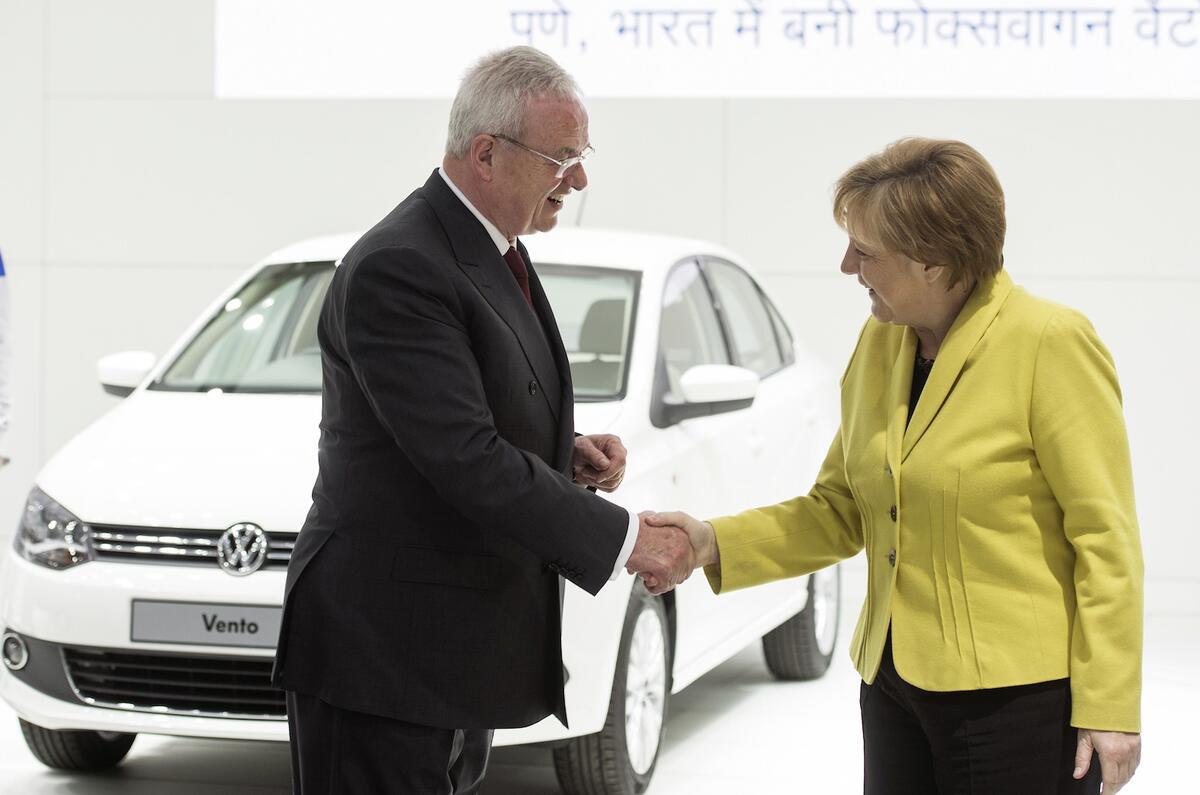Volkswagen Group’s leadership troubles have gone global as the position of group CEO Martin Winterkorn looks ever more perilous.
Last weekend VW Supervisory board Chairman Ferdinand Piech told the press that he was ‘not aligned with Winterkorn’.
Piech’s huge dominance over the running of the VW Group meant this relatively benign comment triggered a storm of speculation about the leadership of the VW Group, which has rattled investors, unions and local government.
The Qatar Investment Authority – which has significant investment in the VW Group – was quoted in the German press criticizing supervisory board chairman Ferdinand Piech.
Handelsblatt said that a QIA source believed Piech should not have raised the issue of the leadership of VW before being able to ‘present an alternative’ that had the backing of the supervisory board.
The latest news reports suggest that a group from the supervisory board, the VW Works Council boss and the Prime Minister of Lower Saxony will all meet on Friday (17th April) to discuss the leadership crisis triggered by Piech's comments.
Winterkorn – who has spent most of his career working in harmony with Piech – was expected to retire in 2016 and has been credited with steering the multi-brand group to huge success.
On paper, Winterkorn’s tenure since being installed in 2007 has been one of significant success, driving VW Group global sales up from 5.72m in 2006 to 10.14m in 2014. Profits are also at an all-time high and up in 2014 more than 21 percent on 2013.
However, when you dig into the breakdown of performance by the various brands, it is clear that the VW brand itself is not on the best shape. With margins down at 2.5 per cent in 2014, it made an operating profit of 2.5bn Euros on sales of 6.16m vehicles.
In stark contrast Porsche also made 2.78bn Euros in profit (a 15.8 per cent margin) on sales of just 203,000 cars. Certainly, Porsche is in the super-premium league, but Audi made an operating profit of 5.15bn Euros (a 9.8 per cent margin) on sales of 1.8m cars.
Clearly the VW Group is prospering on the back of Porsche and Audi and the VW brand itself is being weighed down by comparatively high costs.
The rollout of the MQB platform and MQB factory system across the globe is also immensely costly and is not guaranteed to transform VW brand profitability.
Autocar has also spoken to senior industry figures at rival companies who claim to be surprised by the nature of the high-end (and costly) engineering in the Volkswagen Golf platform.
Moreover, under Winterkorn the VW brand in the US new car market has stumbled badly. Despite a huge push to get back into serious contention in the US, sales slipped back in 2014 and VW admits that it has been badly wrong footed by a lack of SUV and Crossover models.
Heinz-Jacob Neusser revealed VW’s plans for at least five US-centric SUV models to Autocar at the recent New York auto show, but the full line-up is years away and VW’s position in North America will probably take three years to improve noticeably.
VW’s long-trailed plans for a super-budget car – intended primarily for China – also seemed to have run aground under Winterkorn. After failing to devise a concept that both met cost and engineering targets, Dr Neusser told Autocar at New York that the project had now been re-cast.
He said that the new concept is for a budget platform that could spawn both a saloon and a crossover with the “maximum number of shared parts”. However, this new model is still at least three years from the showroom.
All of this would have probably been enough for Piech to pull the rug out from under Winterkorn. But the financial results for the first quarter of 2015 were probably the tipping point.
According to analysts at Evercore ISI, sales of VW brand cars were down by 1.3 percent globally and down 1.8 percent when China is excluded. Even in a rising Western European market which was up by 7.5 per cent, VW brand sales rose by just 1.9 per cent. Profits margins in the first three months of 2015 are thought to have slipped back to 2.1 per cent.
It seems likely that the latter figures were the final straw for Piech, who now looks set to trigger a significant overhaul of VW Group management, with special emphasis on turning around the VW brand, which is simply spending too much money on each car it sells.




Join the debate
Add your comment
Quality vs costs
The real problem with VW in the U.S.
Like Mr. Winterkorn really